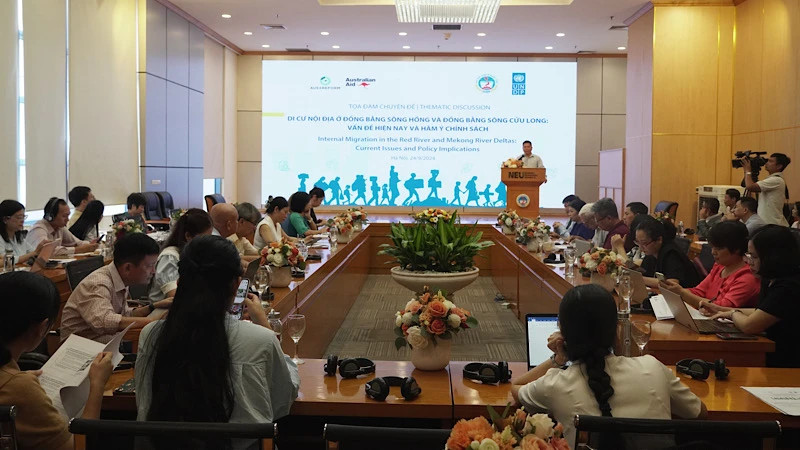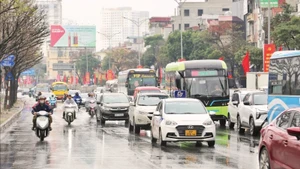Domestic migrants in the Red River and Mekong deltas face myriad challenges in terms of social welfare, accommodation, education and integration, a study by a team from the National Economics University (NEU) has unveiled.
Outcomes of the study shed light on the driving forces behind the movement, challenges facing the group in their daily lives, their access to public services and social welfare, and the opportunities to ensure their protection and integration rights are recognised.
The study was carried out across eight provinces and cities in the two regions, namely Hanoi, Bac Ninh, Hai Duong, Nam Dinh, Can Tho, Long An, An Giang, and Soc Trang. Additionally, Binh Duong, a province in the southeastern region known for receiving many migrants from the Mekong Delta, was also included in the research. Against a backdrop of the 2020 residence law and the national population database, the study provides timely evidence to help shape policies that promote equal rights for migrants nationwide.
At the conference, Associate Professor Dr. Nguyen Thanh Hieu, NEU Vice Rector, expressed hope that the findings will contribute positively to policy-making for migrants in Vietnam, particularly in improving their access to public services and enhancing their quality of life in the two delta regions.
Sabina Stein, Assistant Resident Representative and Head of Governance and Participation Unit at the UNDP Vietnam, noted that recognising and enforcing migrants' rights is not only a matter of justice but also a prerequisite for the promotion of sustainable development.
To fully harness the potential of migration, she stressed the need to create an environment that fosters the integration of migrants into local communities, building bridges that enhance social cohesion and prosperity for all.
The study's results indicate that the majority of migrants in the sample have not accessed basic social benefits. Many of them, lacking professional skills, often engage in simple labour within companies or work freelance in seasonal jobs without access to health insurance, social insurance, or even voluntary social insurance, and are yet to benefit from social assistance policies at their destinations.
A significant finding is that most migrant workers live in substandard rental accommodations that are overcrowded, damp, lack basic amenities, and do not meet fire safety standards. The separation from their families affects their mental and emotional well-being, contributing to various social issues that require attention.
Many face difficulties enrolling their children in public schools and have to choose expensive private kindergartens. From a gender perspective, female migrants face more psychological, social, and community integration challenges than their male counterparts.
Interviews with migrants in the two delta regions also reveals that they rarely participate in local governance or community, cultural, and sports activities in their temporary residences.
Based on these results, the research report proposes several solutions and policy recommendations to ensure that migrants' rights to recognition, protection, and community integration are upheld.
It suggests authorities plan and allocate land for housing construction for low-income individuals, regardless of their permanent or temporary residence status, while diversifying the types and forms of housing available to workers.
Moreover, in regions like the Mekong Delta, there is a need to create agricultural jobs in rural areas to retain the local workforce. Improving transportation connections within the region to allow daily commuting could also help reduce housing pressure in destination areas.
















